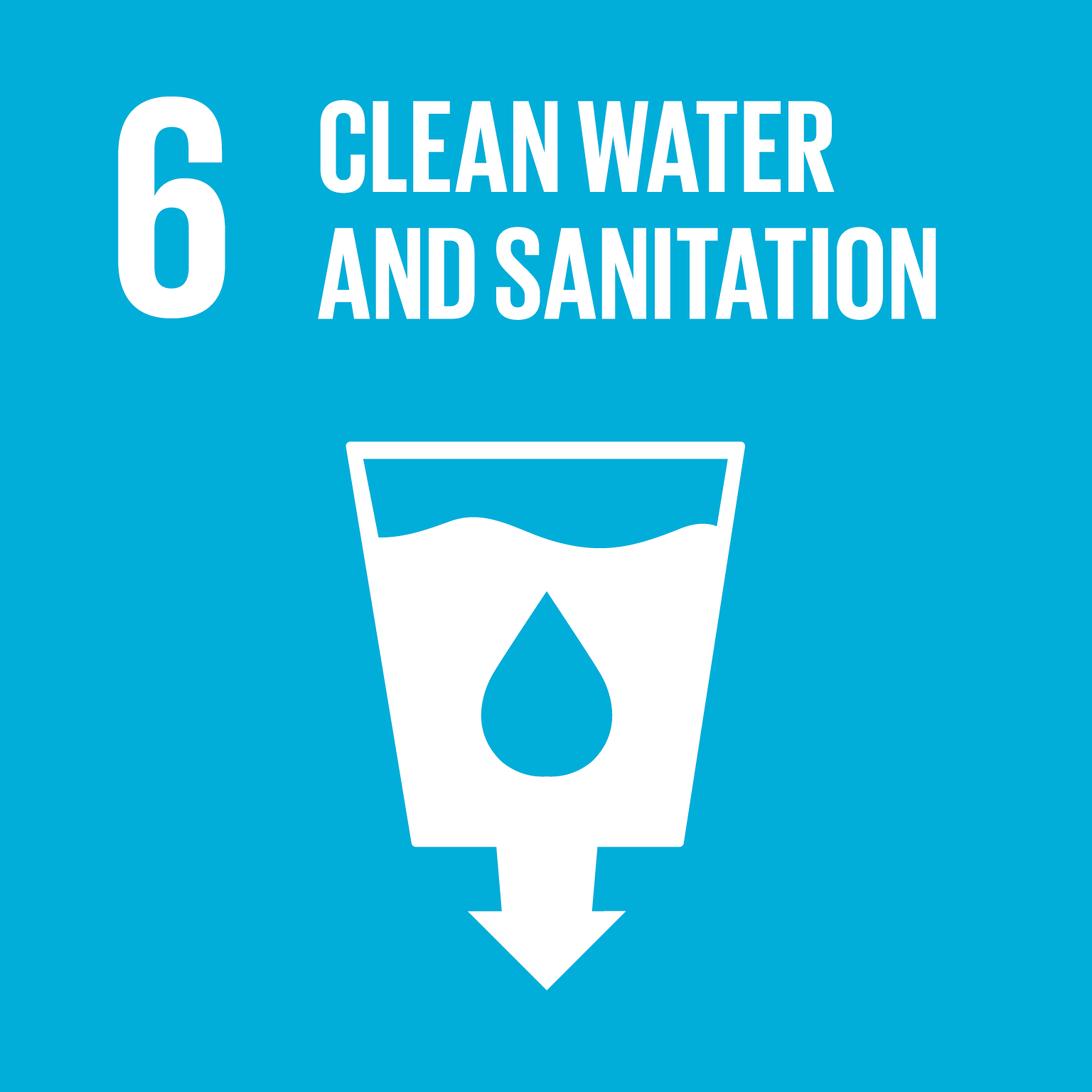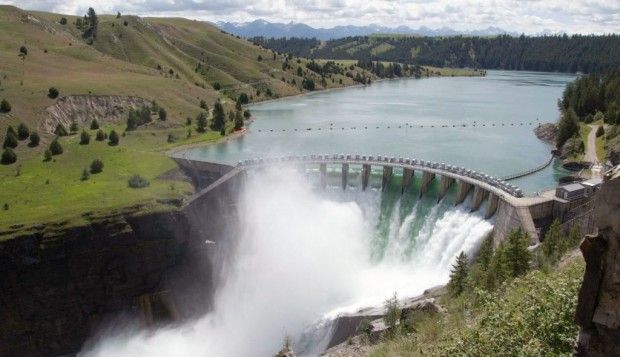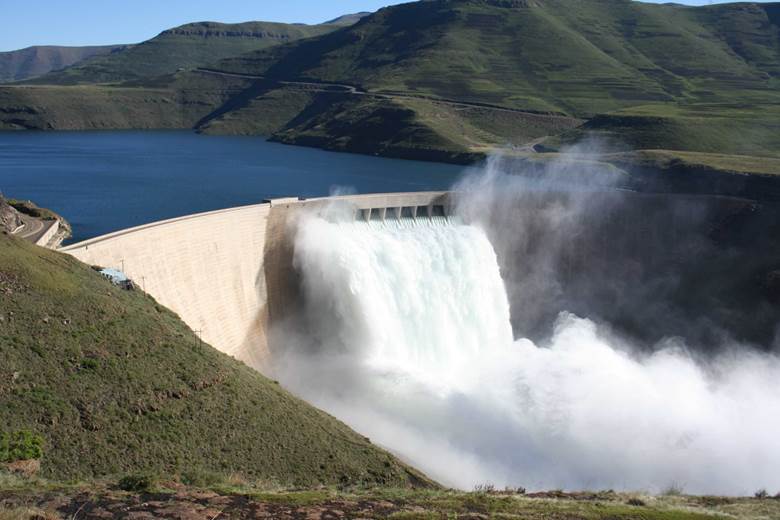 Lesotho Highlands Water Project
Changing lives through improved access to water, sanitation and clean energy
Lesotho Highlands Water Project
Changing lives through improved access to water, sanitation and clean energy

Challenges
Lesotho is among the world’s poorest countries, with over 50 per cent of the population living below the poverty line. The country is relatively devoid of most natural resources, particularly arable land. However, it has abundant water resources, which exceed requirements for possible future irrigation projects and development. Meanwhile, South Africa, which borders Lesotho, is a semi-arid country characterized by low rainfall, limited underground aquifers, and heavy reliance on water transfers from Lesotho. The Lesotho Highlands area is one of the primary water sources of the Vaal River, which provides water for Gauteng, Free State, Northwest, and Mpumalanga provinces, together representing roughly 60 per cent of South Africa’s GDP and 45 per cent of its population. Water supply shortages in this area now pose a significant threat to South Africa’s sustainable development.
Towards a Solution
The Lesotho Highlands Water Project (LHWP) is a multi-phased project intended to provide clean water and sanitation to the Gauteng region of South Africa and to generate hydro-electricity for Lesotho. It was established by a 1986 Treaty signed by the Governments of the Kingdom of Lesotho and the Republic of South Africa. The project entails harnessing the waters of the Senqu/Orange River in the Lesotho highlands through the construction of a series of dams for the mutual benefit of the two countries. LHWP aimed to utilize the vast abundance of water in Lesotho to combat the water shortage experienced by the densely populated Gauteng Province in South Africa, and to foster industrialization in Lesotho. This initiative is a solution to achieve universal and equitable access to safe and affordable drinking water for South Africa while simultaneously providing reliable and sustainable energy, decent jobs, equitable income, and resilient infrastructure to Lesotho, thus promoting inclusive and sustainable economic growth for both countries. The initiative virtually extends across all 8 Priority Areas of the Istanbul Programme of Action (IPoA) and primarily covers nine SDGs, namely, 6, 7, 9, 10, 11, 12, 13, 15 and 17.
This South-South cooperation project between Lesotho and South Africa is supported by the World Bank Group. It is a contractual agreement governing the design, construction, operation, and maintenance of the project, as well as the export of water to South Africa overseen by the Lesotho Highlands Development Authority and Trans-Caledon Tunnel Authority referred to as implementing and borrower agencies respectively. The Joint Permanent Technical Commission (JPTC) has a monitoring, advisory and approval function with regard to the project implementation in Lesotho.
The Lesotho Highlands Development Authority (LHDA) was set up to manage that part of the project that falls within Lesotho’s borders; the construction, operations and maintenance of all dams, tunnel power stations and infrastructure as well as secondary developments such as relocation, resettlement, compensation, supply of water to resettled villages, irrigation, fish hatcheries and tourism.
The Trans-Caledon Tunnel Authority (TCTA) in South Africa manages the delivery tunnel transporting the water over (or rather, under) the border (the Caledon River) to the As River, as well as all structures required to integrate and control the flow of Lesotho water in the river.
The LHDA reports to the JPTC on all matters concerning the project. However, TCTA, with its structures now complete, is accountable to the Lesotho Highlands Water Commission (LHWC) with regard to operations and maintenance issues.
The contribution of the LHWP to the socio-economic activity of Lesotho has been remarkable. There are compensation programmes for affected communities (including resettlement), income restoration and rural development, biodiversity conservation, and the construction of health clinics. Royalties from the sale of water, the sale of electricity, and construction activities (road networks, technology transfer, and other infrastructural developments) and Southern African Customs Union (SACU) revenues have provided an important economic boost to Lesotho. For South Africa, the water cools the Eskom power stations, keeps Sasol and the Free State gold mines operational and supplies the vast industries and sprawling urban areas and cities of Gauteng with clean water and sanitation. It also supplies water to some of the southern towns of Limpopo and the platinum mines of Northwest, as well as the diamond mines and people of Kimberley and surrounding areas. These are semi desert regions with sparse annual rainfall of 50 mm – 400 mm (2 to 16 inches) per annum.
The early involvement of the World Bank has been beneficial in many ways. It provided credibility to the project and also greatly assisted the engineering and environmental aspects through the Engineering and Socio-environmental Panel of Experts.
This project can be replicated to other countries, that have similar context, by ensuring the following: the oversight and implementation responsibilities on a large development project should be clearly delineated and be separate functions; costs and benefits need to be shared in an equitable and clear manner; contracts and financing arrangements require careful planning; tight procurement processes should be institutionalized to prevent corruption, while whistle-blowing should be encouraged. The maintenance of the welfare of the persons and communities directly benefitting from the project is a powerful guiding principle for socio-environmental policies.
Additionally, such socio-environmental programmes require careful planning, rigorous implementation, and phased exit strategies that are clear to all involved stakeholders. It is important to do the environmental impact assessments and action plans before any construction starts. Also, the resettlement and compensation policies should be clear, transparent, and adaptable. Communication channels to the affected communities need to be established and utilized at the outset. A rigorous complaints procedure has to be in place too, so that any concern or grievance can be dealt with as soon as possible. Compensation officers have to be empowered to settle minor claims immediately.
Contact Information
Countries involved
Supported by
Implementing Entities
Project Status
Project Period
URL of the practice
Primary SDG
Secondary SDGs
Similar Solutions
| NAME OF SOLUTION | Countries | SDG | Project Status | |
|---|---|---|---|---|
Accelerating the Transformational Shift to a Low-Carbon Economy in Mauritius Towards supplying 35 percent of the country’s energy needs with renewables by 2025 |
Lesotho, South Africa | 05 - Gender Equality 09 - Industry, Innovation and Infrastructure 13 - Climate Action | Ongoing | View Details |
Accelerator Labs Network Following collective intelligence methods to address emerging sustainability challenges and the growing demand for local solutions |
Lesotho, South Africa | 08 - Decent Work and Economic Growth 13 - Climate Action | Ongoing | View Details |
Addressing Racial and Ethnicity-based Discrimination and Strengthening the Protection of Rural Afro-descendants UNFPA supports data disaggregation as a tool to fight racism and ethnic discrimination |
Lesotho, South Africa | 01 - No Poverty 02 - Zero Hunger 03 - Good Health and Well-being 05 - Gender Equality 06 - Clean Water and Sanitation 11 - Sustainable Cities and Communities 16 - Peace and Justice Strong Institutions | Ongoing | View Details |
Advanced International Training Programme on Municipal Finance and Local Democracy across Five African Countries Pioneering the proof of concept that greater impact in capacity development for local governments requires a hybrid of methodologies to unlock resource flows |
Lesotho, South Africa | 01 - No Poverty | Ongoing | View Details |
African School of Humanitarian Forensic Action Improving the forensic capacities of African countries |
Lesotho, South Africa | 17 - Partnerships for the Goals | Completed | View Details |

